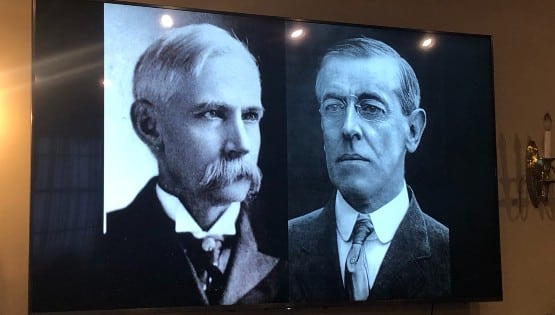
Submit guest columns: [email protected]
Over the past 50 years, the cities, towns, and suburban neighborhoods of Virginia have grown dramatically, adding millions of new people, new shopping malls, and the roads and parking lots that go with them. The storm sewers and other facilities we have were not built to deal with the levels of run off or the types of pollutants that we worry about today.
Virginia rivers, streams, bays and ground water are a limited and increasingly valuable asset. As this region continues to grow, we need to make sure we have the clean water we need to drink, to grow the food we all eat, and to provide safe places for fishing, swimming, and recreation. Gains have been made in pollution reduction from farms and sewage treatment plants, but it is being negated and overwhelmed by increasing run off from lawns, parking lots and roads. Legislation proposed to reauthorize the Chesapeake Bay program now being considered by Congress presents a fair way of getting every individual, business, farm and community focused on what needs to be done to get the results we want.
The Chesapeake Clean Water and Ecosystem Restoration Act (S.1816 and H.R.3852) proposes a comprehensive approach to address pollution from all sources, and provides the authority and resources to make sure it gets done. Most importantly, it focuses on the spiraling storm water runoff problem that feeds ever more pollution into Virginia waters and is contributing to the loss of the great Chesapeake Bay fishery and estuary.
The bill makes the common sense requirement that new development and redevelopment projects control and reduce the water rushing off roofs, streets, and parking lots, dramatically lowering erosion and pollutant levels. The methods and technology are ready and this new legislative effort will provide federal help for towns, cities, and counties to meet this ambitious goal.
Our future and the future of our water resources require that all of our communities apply new resources to plan, engineer and construct storm water infrastructure that is up to the job. Environmental and civil engineers have developed great methods to accomplish the goal. But control of storm water pollution requires a long-term investment of sufficient public and private capital.
It’s everyone’s responsibility to make sure our water is in good condition. Local governments and public utilities will need to increase revenues for investment in storm water facilities. The Commonwealth of Virginia will need to accept that storm water infrastructure is of no less importance than needed school construction and transportation projects. New development projects will have to incorporate new techniques for storm water management into design and construction. The proposed legislation takes the first step for this new collective effort by setting attainable standards throughout our region and directing the federal government to invest $1.5 billion toward controlling our run-off.
Everyone will need to do their share to help. Homeowners can plant water friendly rain gardens and control lawn run-off. Farmers will need to expand efforts to reduce pollution by fencing cattle and other livestock out of streams, planting vegetative filter strips along streams and rivers, and using proven cover crop strategies to reduce erosion and capture more manure and fertilizer run-off before it gets in our water. The federal government, the largest landowner in the region, will be expected to meet the same standards as any other new development. Federally funded projects, such as the expansion of the Washington Beltway and improvements to I-81, should meet the highest standards during construction and after completion.
The leaders of our Congressional delegation can make this effort succeed. We need experts on agriculture, like Congressman Bob Goodlatte, to fight for the resources that ensure our farmers can implement the best farming practices and continue to operate profitably. We need Congressman Gerry Connolly to help his colleagues to understand why federal investment is critical to the clean redevelopment of Tysons Corner, the largest redevelopment project on the entire East Coast. We need Congressman Tom Perriello to explain how this investment in sustainable development will help communities from Charlottesville to Danville attract new businesses and jobs.
Sen. Mark Warner, a national leader on financing infrastructure, must lead the effort to secure this critical investment in new and improved storm water infrastructure. Congressman Rob Wittman’s constituents want him to explain how improved water quality will help create new jobs from better fisheries, tourism and more recreation. The region’s leaders on the appropriations committees, Congressmen Frank Wolf and Jim Moran, must stand firm to ensure that the investment actually gets to Virginia.
Congressman Bobby Scott and Congressman Eric Cantor are leaders in their respective political parties. They have the power and skill to get the rest of the Congress to understand that how Richmond and the other cities along the James River meet this challenge will provide a model that the rest of the United States will be able to replicate and use to improve their waters as well.
Christopher G. Miller is the president of the Piedmont Environmental Council.










